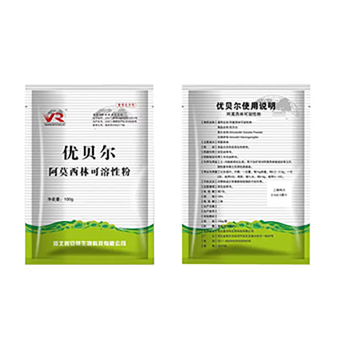- Afrikaans
- Albanian
- Amharic
- Arabic
- Armenian
- Azerbaijani
- Basque
- Belarusian
- Bengali
- Bosnian
- Bulgarian
- Catalan
- Cebuano
- Corsican
- Croatian
- Czech
- Danish
- Dutch
- English
- Esperanto
- Estonian
- Finnish
- French
- Frisian
- Galician
- Georgian
- German
- Greek
- Gujarati
- Haitian Creole
- hausa
- hawaiian
- Hebrew
- Hindi
- Miao
- Hungarian
- Icelandic
- igbo
- Indonesian
- irish
- Italian
- Japanese
- Javanese
- Kannada
- kazakh
- Khmer
- Rwandese
- Korean
- Kurdish
- Kyrgyz
- Lao
- Latin
- Latvian
- Lithuanian
- Luxembourgish
- Macedonian
- Malgashi
- Malay
- Malayalam
- Maltese
- Maori
- Marathi
- Mongolian
- Myanmar
- Nepali
- Norwegian
- Norwegian
- Occitan
- Pashto
- Persian
- Polish
- Portuguese
- Punjabi
- Romanian
- Russian
- Samoan
- Scottish Gaelic
- Serbian
- Sesotho
- Shona
- Sindhi
- Sinhala
- Slovak
- Slovenian
- Somali
- Spanish
- Sundanese
- Swahili
- Swedish
- Tagalog
- Tajik
- Tamil
- Tatar
- Telugu
- Thai
- Turkish
- Turkmen
- Ukrainian
- Urdu
- Uighur
- Uzbek
- Vietnamese
- Welsh
- Bantu
- Yiddish
- Yoruba
- Zulu
Aug . 14, 2024 05:01 Back to list
Effective Treatments and Remedies to Eliminate Worms in Your Dog's System
What Can Kill Worms in Dogs?
Dogs are beloved companions, but they can be susceptible to a number of health issues, including parasitic infections caused by worms. Worms such as roundworms, hookworms, tapeworms, and whipworms can cause serious health problems if left untreated. Fortunately, there are effective ways to eliminate these parasites and protect your furry friend’s health.
Understanding the Types of Worms
Before delving into treatment options, it's important to understand the types of worms that commonly affect dogs
1. Roundworms These are long, spaghetti-like worms that can be found in a dog's intestines. Puppies are particularly susceptible and can contract them from their mother. 2. Hookworms These worms attach to the intestinal wall and feed on the dog's blood, potentially leading to anemia. 3. Tapeworms Characterized by their flat, segmented bodies, tapeworms often enter a dog's system through fleas or by ingesting infected rodents. 4. Whipworms These are less common but still harmful, infesting the large intestine and causing severe gastrointestinal issues.
Symptoms of Worm Infestation
Common signs of worm infestation in dogs include vomiting, diarrhea, weight loss, a bloated abdomen, lethargy, and a dull coat. Some dogs may also show signs of discomfort or itchiness around their anus. Recognizing these symptoms early can help in quick intervention.
Diagnosis and Treatment Options
If you suspect your dog has worms, a trip to the veterinarian is essential. The vet will perform a fecal examination to identify the type of worms present. Based on the diagnosis, treatment can involve various medications known as anthelmintics.
what can kill worms in dogs

1. Pyrantel Pamoate Effective against roundworms and hookworms, this medication works by paralyzing the worms, allowing them to be expelled from the dog’s system. 2. Fenbendazole This broad-spectrum dewormer targets multiple types of worms, including roundworms, hookworms, and whipworms. It is often used for a period of several days to ensure all worms are eliminated.
3. Praziquantel Specifically effective against tapeworms, this medication works by breaking down the tapeworm’s body so that it can be absorbed and eliminated through the dog's feces.
4. Ivermectin Used primarily for heartworm prevention, it can also treat certain types of intestinal worms when prescribed in the right dosages.
Prevention is Key
Preventing worm infestation is crucial to maintaining your dog’s health. Regular veterinary check-ups and fecal examinations can help catch worm infestations early. Moreover, ensuring that your dog is on a regular deworming schedule can significantly reduce the risk of infection. When taking your dog outside, keep them away from fecal matter and discourage them from eating potentially contaminated materials.
Maintaining good hygiene, including cleaning your dog’s living environment and promptly disposing of waste, will also help minimize the risk of worms. Additionally, flea control is vital since fleas can carry tapeworms.
Conclusion
Worms can pose serious health risks to dogs, but with proper knowledge and effective treatments, they can be managed successfully. Regular veterinary visits, timely medications, and preventive measures are crucial in protecting your furry friends from these parasites. If you suspect your dog has worms, consult a veterinarian promptly to determine the best course of action. Keeping your dog healthy ensures a happier life for both of you!
-
Guide to Oxytetracycline Injection
NewsMar.27,2025
-
Guide to Colistin Sulphate
NewsMar.27,2025
-
Gentamicin Sulfate: Uses, Price, And Key Information
NewsMar.27,2025
-
Enrofloxacin Injection: Uses, Price, And Supplier Information
NewsMar.27,2025
-
Dexamethasone Sodium Phosphate Injection: Uses, Price, And Key Information
NewsMar.27,2025
-
Albendazole Tablet: Uses, Dosage, Cost, And Key Information
NewsMar.27,2025













